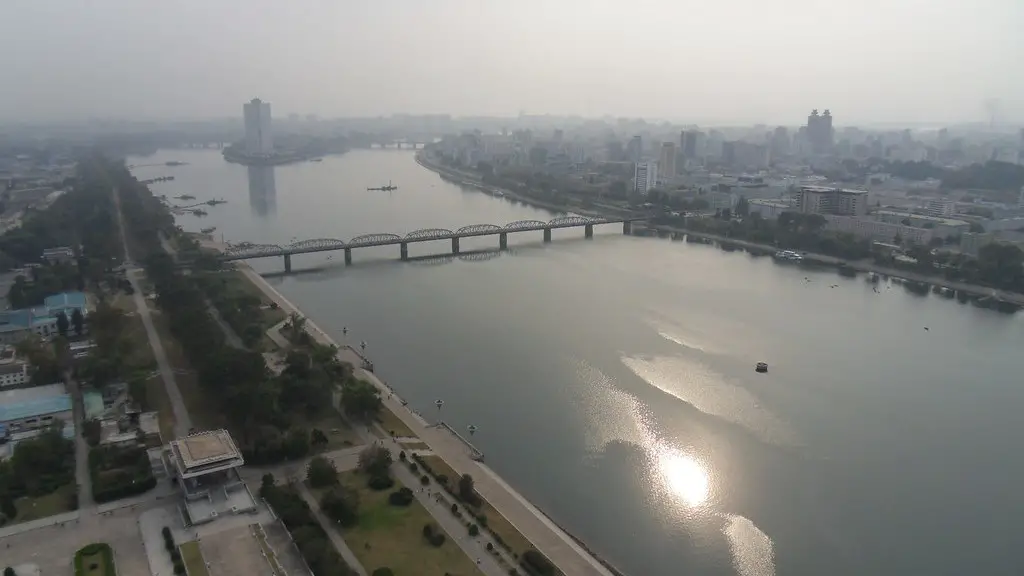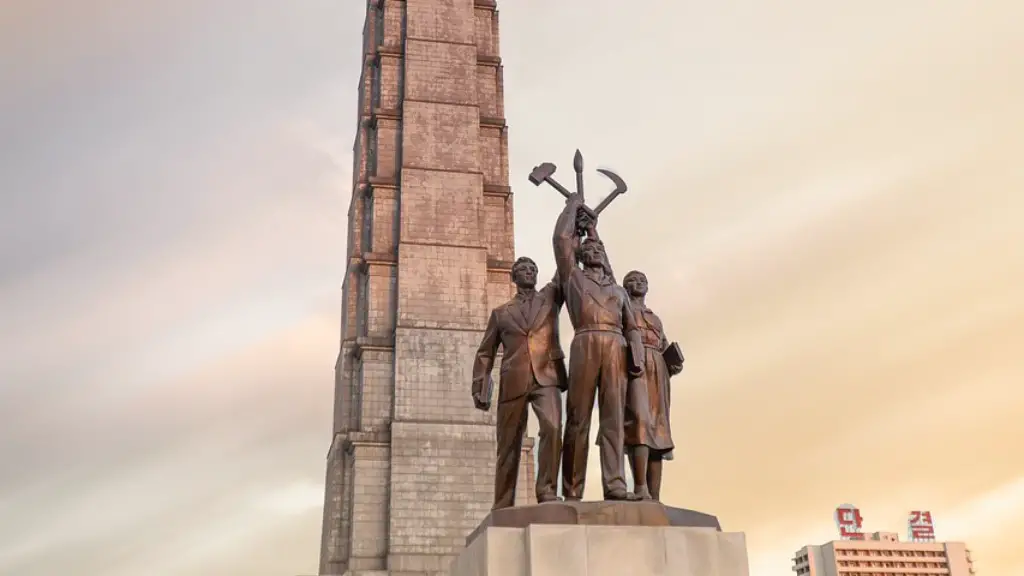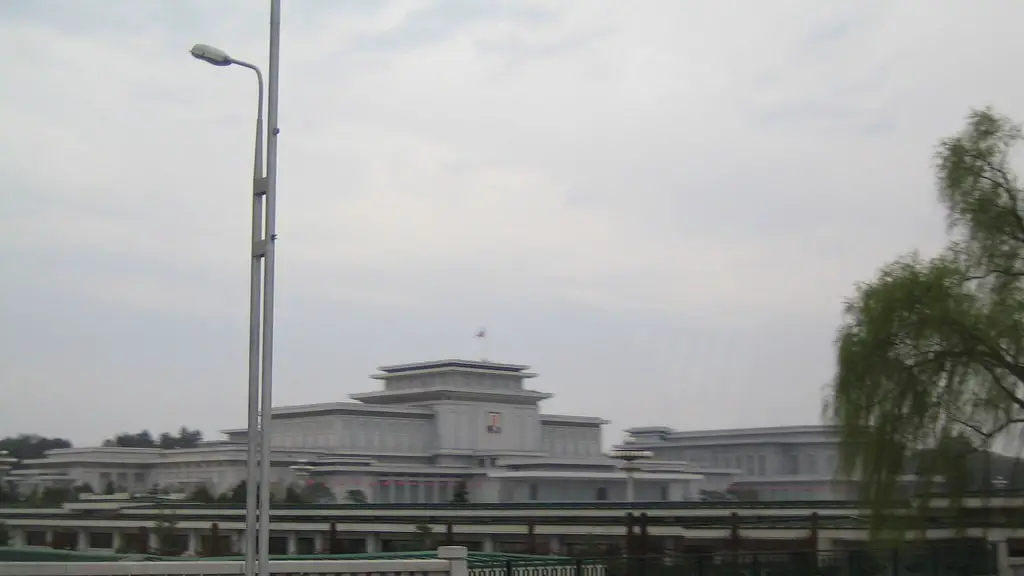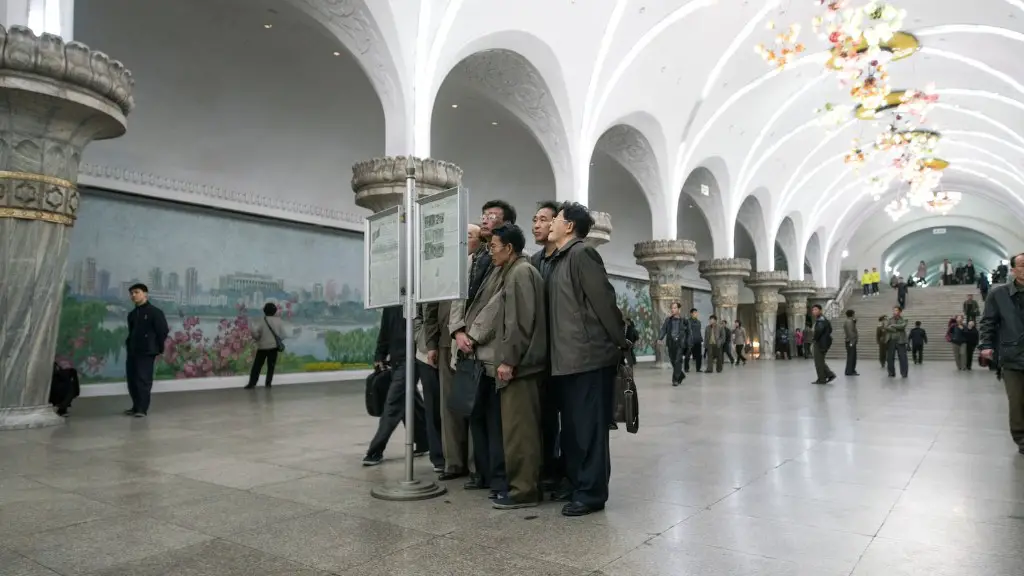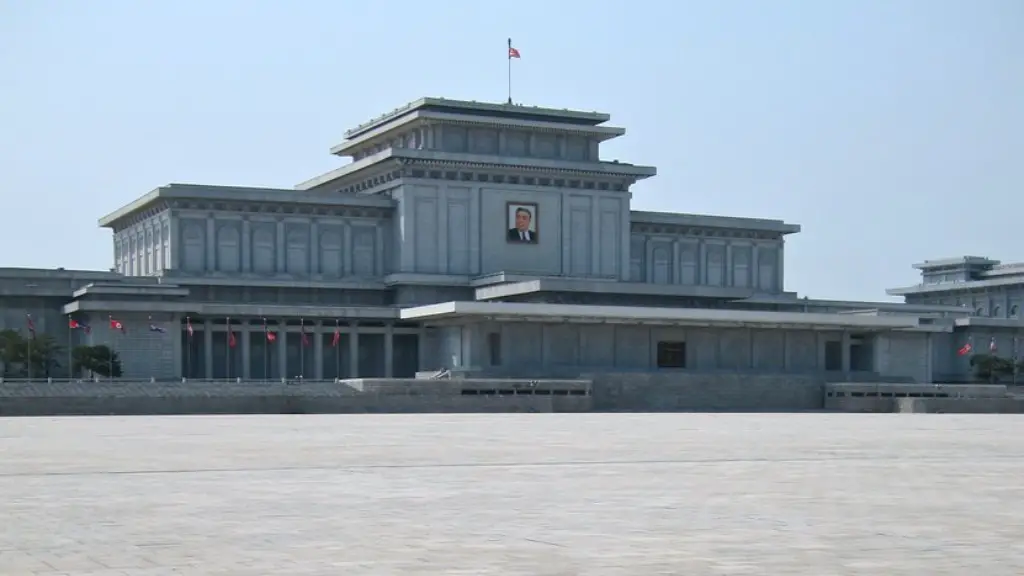North Korea’s Regime
North Korea is a highly secretive and closed country, ruled by the Kim family for three generations. Situated in East Asia, the country has been in a state of tension with the West since the Korean War in 1950. North Korea is known for its oppressive regime and its disregard for human rights. Nevertheless, the country has managed to survive for seventy years despite the international pressure and economic sanctions.
North Korea has a totalitarian government that is characterized by an absolute power held by one leader, Kim Jong-un. Under his rule, the country is divided into provinces and each province has its own Supreme People’s Assembly. The country is also governed by the Workers’ Party, which controls all of the aspects of life.
North Korea is also known for its policy of “self-reliance”, an economic policy that aims to make the country self-sufficient and independent from the rest of the world. Consequently, the country has built its own industry, agricultural sector and military. As a result of this policy, the country has been able to overcome the devastating effects that international sanctions have had on its economy.
North Korea’s economy is heavily subsidized by the government, which controls currency exchange and sets prices for key goods. This has led to a high level of dependence on the government and a lack of economic freedom for North Korean citizens. North Koreans can also be subject to public criticism and humiliation if they violate the laws of the country.
Furthermore, the North Korean government maintains a firm grip on its citizens by monitoring their daily lives. Citizens are monitored through surveillance, including cameras, phone taps and home visits. The population is also monitored through propaganda and mass media. The government also engages in censorship and restricts the freedom of speech, the press and internet access.
The North Korean government also maintains a strict control over religion. The population is encouraged to follow the Juche ideology, the state’s official ideology, which emphasizes self-reliance, independence and solidarity. Other religions are strictly prohibited and religious activities are heavily regulated by the government.
In conclusion, North Korea is a highly oppressive regime with a totalitarian government and an economy that is heavily subsidized by the state. The population is heavily monitored and censored, with freedom of speech and press limited. Finally, religion is strictly regulated and Juche is the official ideology followed by the North Korean people.
Effects Of North Korea’s Regime
The effects of North Korea’s oppressive regime are far reaching and heavily felt by its citizens. Due to its oppressive regulations, the country has restricted freedom of movement, speech, and assembly, and the economy is heavily subsidized by the government, leading to a high level of dependence and lack of economic freedom.
Numerous United Nations studies have also identified serious violations of international human rights. North Korea is well known for its systematic use of forced labour, torture and imprisonment of political prisoners, and repression of free speech. The lack of political freedom has led to a rise in inequality, poverty, and malnutrition in the country.
Economic stagnation has also been associated with North Korea’s oppressive regime. The country’s economic system is dominated by the state and its subsidies, thus stunting economic growth. The lack of economic freedom further exacerbates the poverty and inequality in the country.
North Korea’s oppressive regime has also adversely impacted the environment. In 2018, a report issued by Greenpeace characterized the country’s logging practices as “destructive”. The loss of forest cover has been linked to erosion, sedimentation, flooding and desertification. In addition, air and water pollution have also been linked to North Korea.
The lack of economic opportunities in North Korea has also led to an increase in refugees fleeing the country. Many refugees cite the oppressive regime as one of the key drivers for their exodus. North Korea is considered to be one of the largest sources of refugees in the world.
In sum, North Korea’s oppressive regime has resulted in severe and far-reaching consequences. Human rights abuses, economic stagnation and environmental degradation are just some of the effects that have been associated with the country’s regime.
International Reactions To North Korea’s Regime
North Korea’s oppressive regime has prompted strong condemnation from the international community. Following a UN report identifying serious violations of human rights, various countries and organizations have called for an end to the oppressive regime in the country.
The United States and its allies have long sought to put diplomatic and economic pressure on North Korea to force it to end its oppressive practices. In 2017, the US imposed the most stringent sanctions ever to be imposed on North Korea, which were designed to have a maximum impact on the country’s ability to acquire resources and acquire revenue.
The United Nations has also issued statements condemning North Korea for its human rights abuses. In response, the North Korean government has accused the UN of having a “hostile policy”, claiming that its human rights report is “politically motivated”.
Countries in the region, such as South Korea and China, have taken a more conciliatory approach towards North Korea. South Korea has pursued a policy of engagement and cooperation with the North, stressing the need for dialogue to foster peace and reconciliation. Likewise, China has maintained ties with North Korea, providing the regime with economic support.
The European Union has adopted a critical approach to North Korea, having called for an end to its oppressive regime in various Security Council resolutions and Human Rights Council resolutions. The EU has also imposed sanctions on North Korea, having listed the country as a human rights violator since 2006.
In conclusion, the international community has reacted strongly to North Korea’s oppressive regime. Countries and organizations have called for an end the human rights violations and the US has imposed sanctions in response. Meanwhile, countries in the region have taken a more conciliatory approach, emphasising the need for dialogue and cooperation between North and South Korea.
Attitudes Of North Korean Citizens To The Regime
Due to North Korea’s highly oppressive regime, the attitudes of its citizens towards the government vary greatly. Many North Koreans are skeptical of the government’s claims and remain distrustful of the country’s official rhetoric. These views are often borne out through stories of public dissent, particularly among younger citizens.
In recent years, there has been a rise in dissent in North Korea, much of which is driven by young citizens. In 2017, a survey found that 43% of college-age North Koreans viewed the government as “untrustworthy”. In addition, a 2016 study revealed that 90% of North Koreans under the age of 30 had negative feelings about the regime.
However, there are still North Koreans who remain loyal to the government, primarily those who are older. In the same survey, 53.3% of North Koreans over the age of 40 expressed positive feelings about the regime. In addition, there are also those who have been indoctrinated by the state’s propaganda and view the government in a positive light.
Moreover, a growing number of North Koreans are utilizing technology to circumvent the regime’s restrictions. This includes accessing foreign media, such as TV, movies and music, and using the internet to connect with individuals outside of the country. This has allowed people to learn about the outside world and gain an alternative perspective on the oppressive regime.
To conclude, North Koreans’ attitudes towards the regime vary greatly. While some remain loyal to the government, many are increasingly dissatisfied with the oppressive regime. Furthermore, with the increased access to foreign media, North Koreans are increasingly exposed to alternative perspectives and dissent is on the rise.
How North Korea Could Change Its Regime
The potential for North Korea to transform its oppressive regime into a more open and democratic system has been widely debated by political experts. Currently, the North Korean government does not appear to show any signs of loosening its grip, however, there are a number of policy changes that could be employed to improve the situation.
First, the government should work to improve economic freedom by liberalizing trade and relaxing currency exchange and price controls. This would lead to increased economic growth and development, which could then lead to increased political freedom. In addition, the government should also relax its media censorship laws and allow for increased freedom of information and speech.
Furthermore, the government should ensure that all citizens are allowed to express their political views, organize peaceful demonstrations and have access to fair legal protections. In addition, there should be an increase in religious freedom and all forms of religious intolerance should be condemned by the state. Finally, North Korea should work to facilitate the reunification of the two Koreas and promote peace with South Korea.
In summary, there are a number of steps that North Korea could take to improve its oppressive regime. These include improving economic freedom, allowing more freedom of speech and expression and protecting religious freedoms. If implemented, these changes could lead to a more open and democratic system in the country.
Conclusion
North Korea is a highly oppressive regime with a totalitarian government and an economy that is heavily subsidized by the state. Human rights abuses, economic stagnation and environmental degradation are just some of the effects that have been associated with its regime. The international community has responded with strong condemnation and countries in the region have taken a more conciliatory approach. Attitudes of North Koreans towards the government vary, with some remaining loyal to the regime and others increasingly dissatisfied. Finally, there are a number of steps that the government could take to improve its oppressive system, such as improving economic freedom, allowing more freedom of speech and expression, and protecting religious freedoms.
